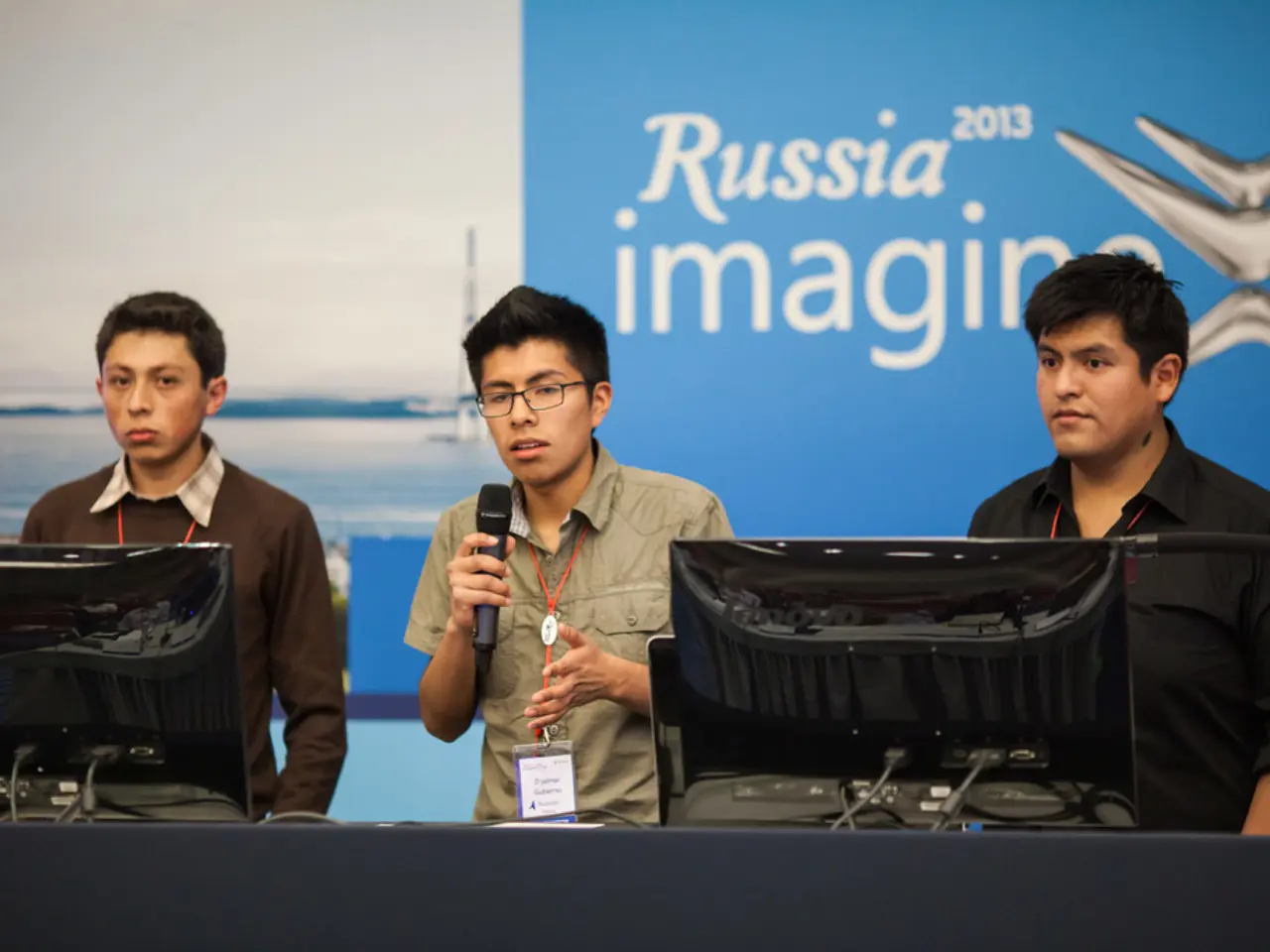Ukraine-U.S. Peace Hinges on Trump Complying with Putin's Conditions with Determination
In an upcoming summit in Alaska, President Donald Trump will meet with Russian President Vladimir Putin, viewing the encounter as a "listening exercise" to end the ongoing conflict in Ukraine.
The meeting presents an opportunity for Trump to stake out an aggressive position and potentially convince Putin to cease hostilities, bolstering Trump's growing legacy as a peacemaker. However, experts caution that Putin is unlikely to change course overnight.
Trump is expected to affirm that Ukraine will continue to receive American arms, with the possibility of expanded shipments if Putin remains obdurate. Ideally, longer-range missiles such as the JASSM-ER and Tomahawk could follow, capable of striking military-industrial plants deep inside Russia.
Rear Adm. (Ret.) Mark Montgomery, co-lead of the Air and Missile Defense Program at the Foundation for Defense of Democracies, has been involved in the administration's preparations for the summit. The administration has also been coordinating with Ukrainian and European officials ahead of the meeting.
Regarding Putin's demands for territorial concessions and neutrality for Ukraine, experts suggest a negotiated framework that safeguards Ukraine's sovereignty with the support of allies, rather than yielding to maximalist Russian terms. Accepting Russia's maximalist demands could lead to a flawed deal unacceptable to Ukraine and its partners, potentially risking a breakdown in transatlantic relations and Russian domination of Ukraine.
Trump should seek the support of Ukraine and NATO allies to build a unified transatlantic position, using the summit as a step toward direct Russian-Ukrainian talks. If Putin continues to insist on his non-starter demands, Trump must convey his willingness to apply sustained pressure, including penalizing countries like China for their purchases of Russian oil and comprehensively designating and enforcing sanctions on Russia's "shadow fleet" of oil tankers.
Trump could invite Ukrainian President Volodymyr Zelensky for a separate meeting prior to his sit-down with Putin, sending a strong signal of unity. He could also push for an "air truce" as an interim step, halting missile and drone barrages on Ukrainian cities and infrastructure. Russia could be asked to relinquish territory it holds near the cities of Kharkiv and Sumy in northeastern Ukraine and to return control over the Zaporizhzhia Nuclear Power Plant to Kyiv.
Kyiv and European leaders have rejected Russia's demands, understanding that capitulation would only embolden Putin. In the end, Putin will have to accept a European "reassurance force" in Ukraine, including a ground component of perhaps 10,000 troops, and a monitoring force that operates intrusively on both sides of the line of contact.
When he meets with Putin, Trump should firmly reject Moscow's maximalist demands and insist that a cease-fire must come first, ahead of talks on territory and other issues. Trump will need to show his negotiating mettle and impress upon Putin that his maximalist demands will yield nothing but more death and economic destruction for Moscow.
Sources: [1] https://www.nytimes.com/2021/06/16/us/politics/trump-putin-alaska-ukraine.html [2] https://www.washingtonpost.com/world/europe/trump-putin-summit-ukraine-donbas/2021/06/16/50610610-12b8-11eb-943e-66f686223519_story.html [4] https://www.defenseone.com/ideas/2021/06/trump-putin-ukraine-summit-what-experts-say/1706967/
In the context of the upcoming summit in Alaska, politics and war-and-conflicts intertwine as President Trump aims to use the meeting as a platform to address the ongoing conflict in Ukraine, potentially convincing President Putin to cease hostilities. Experts suggest that Trump should seek the support of Ukraine, NATO allies, and the general public to build a unified transatlantic position, using diplomacy and potential sanctions to counter Russia's maximalist demands and safeguard Ukraine's sovereignty.







